Top 5 most promising Solar Mobility ventures

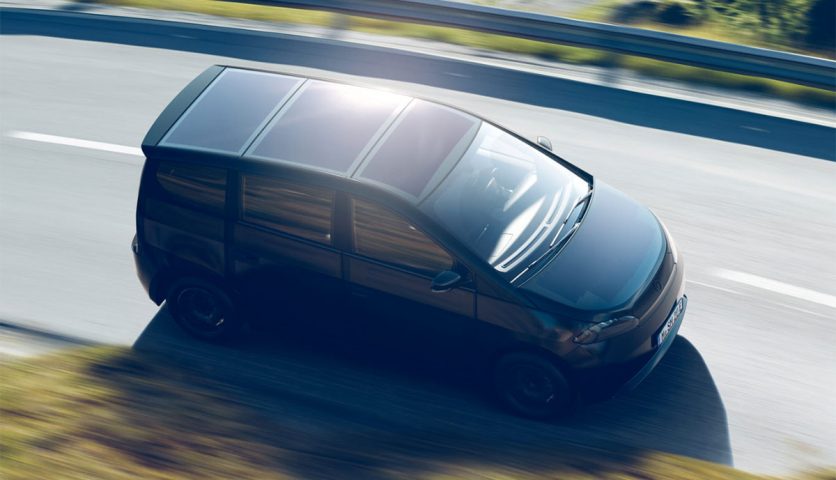
Throughout the development of solar integration, the efficiency of photovoltaic (PV) panels has increased, while PV panels’ prices have decreased drastically. IEA has announced solar to be the lowest-cost option for renewable electricity generation since 2020. However, to reach net zero emissions by 2050 an average annual generation growth of 24% is needed between 2020 and 2030. Policies and ambitions haven’t gotten in line with this path yet, but let’s check out some promising startups that enable solar mobility and make an important contribution.
Sono motors
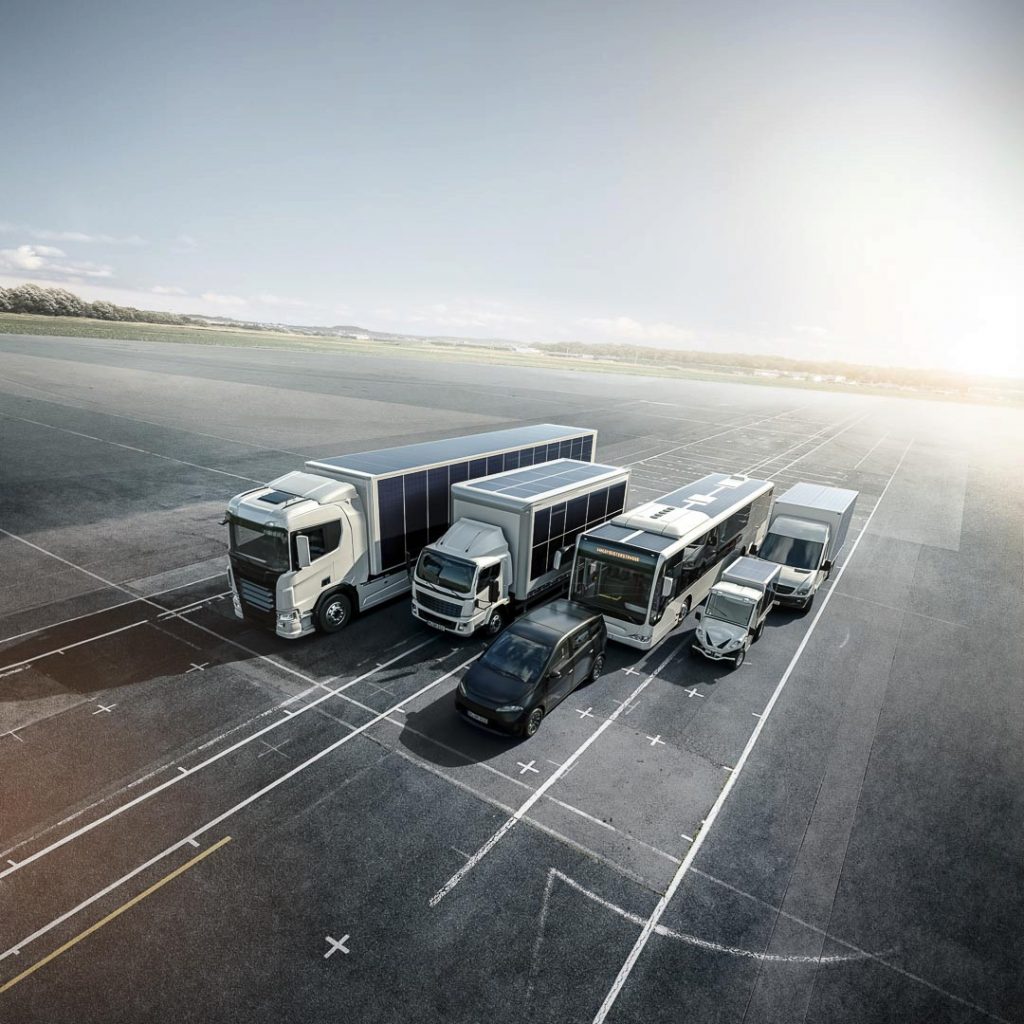
Sono Motors offers integration of solar technology on different vehicles such as buses, trucks, cars and light electric vehicles. Solar modules can be integrated into electric and diesel vehicles with solar energy adding to the power range. The buses, trailers and trucks can be powered up to a 100% of energy demand, using the solar integration, but cover a 50% on average.
The car can, in contrast to the other vehicles, be bought as a whole. It has 248 seamlessly integrated solar cells and can add 112 km – up to 245 km – on average per week, of driving range to the car’s battery.
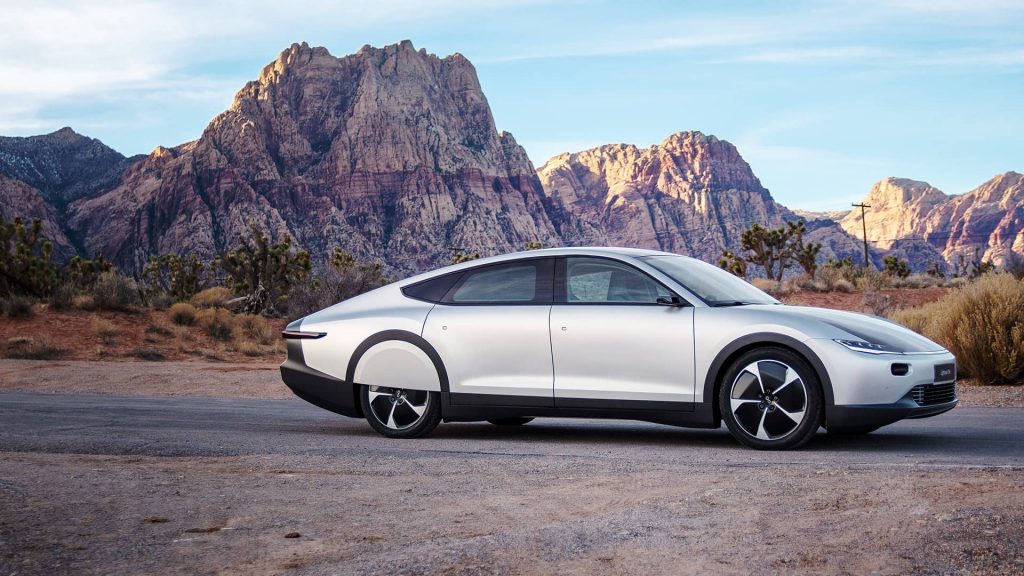
Using Vehicle Integrated Photovoltaics (VIPV), Lightyear designed a long-range solar car. Its energy use of only 83 wh per kilometre on the WLTP cycle enables it to reach a range of 725 kilometres, with a 12 km additional distance after one hour of solar charging. The luxurious car offers space for five adults, an acceleration of 0 – 100 km/h in less than 10 seconds, 780 L of storing space and fast charging (60kW) resulting in a 570 km driving distance after one hour of charging.

Does Wattlab sound familiar? Last month we were able to ask them 10 questions! Their mission to integrate solar by using existing surfaces results in sacrificing less nature for solar fields, with a 25% higher efficiency than conventional solar. Bo Salet, CEO and co-founder; “By generating energy where it is needed, fuel consumption can be decreased while not creating problems for the power grid.”
Something that distinguishes Wattlab from other integration solutions, is that they propose solutions for shipping with their solar hatches for inland bulkcarriers.
Squad mobility
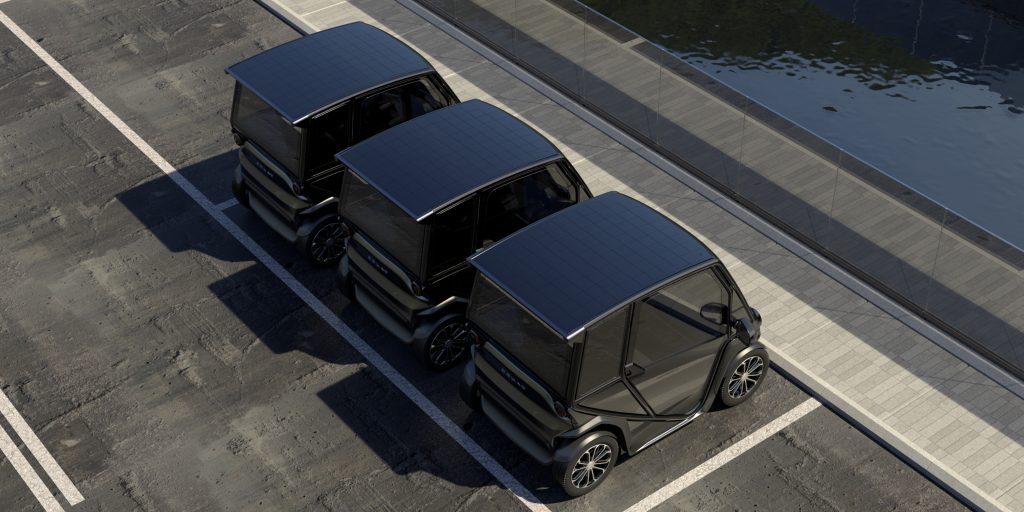
Squad proposes solar mobility for urban usage (with speed up to 45 km/h and a width of 1 meter), allowing all short distance trips to be fully covered by the solar integration system. The solar panel can charge up to 20 km per day in Europe, while the average micro car usage is around 12 km per day – meaning full coverage of energy demand by the solar panels. The vehicle is powered by electric motors and batteries, to fulfill energy demand at all times.
Aptera
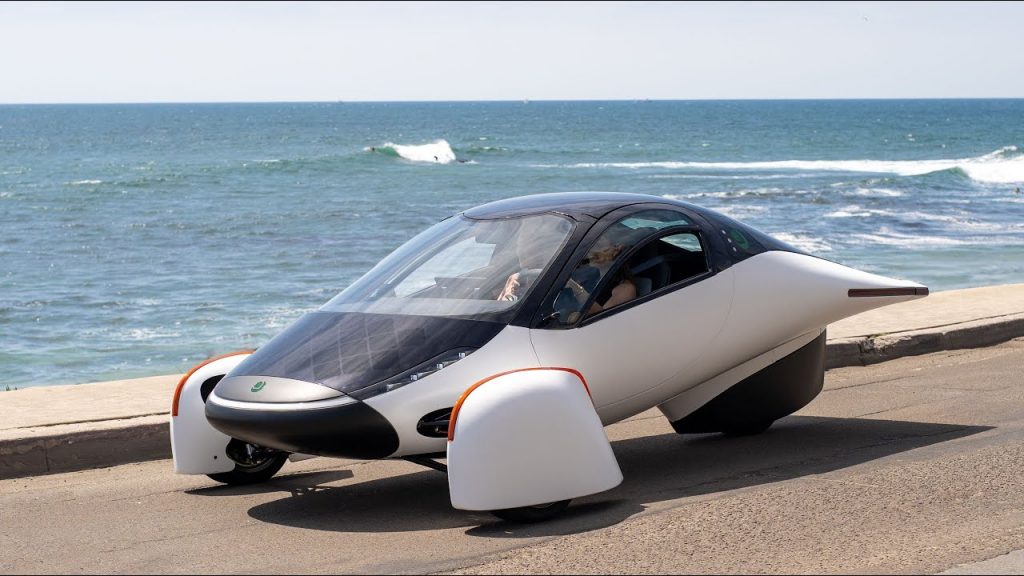
The Aptera car has a range of 1610 km per charge, with an additional range of up to 65 km per day on solar energy, depending on the number of integrated panels. The vehicle accelerates from 0-95 km within 3.5 seconds.The remarkable shape allows Aptera to use 30% of the energy compared to other electric and hybrid vehicles on the road today.
Platform Zero’s take: Although a lot of research and development still needs to be done to apply and integrate solar solutions, the aforementioned companies show some bold moves in this field. We keep an eye on the developments and promising technologies with the relative low-cost solutions solar applications offer. Are you working on a solar solution you think we should know of? Please connect or check out our page on funding opportunities!
